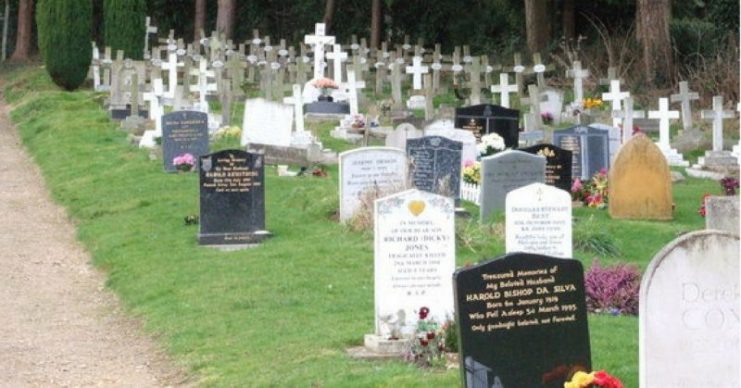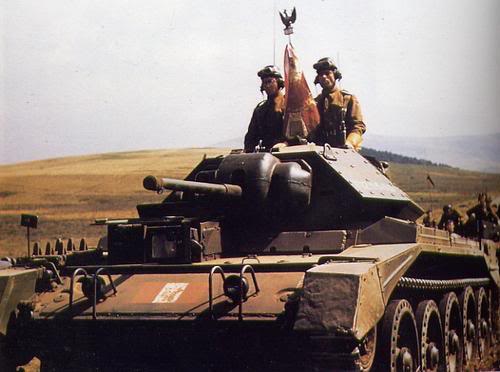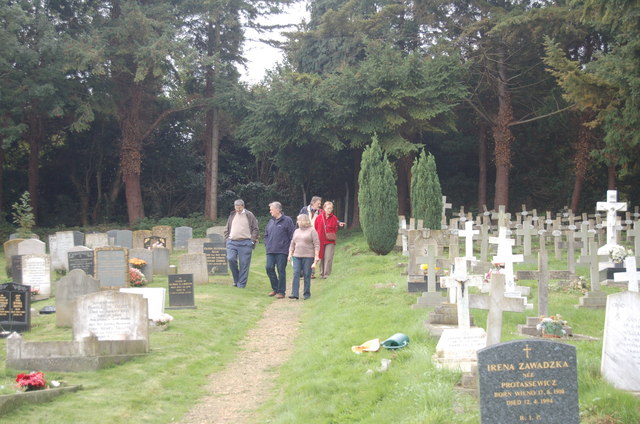A cemetery in Gloucestershire, Britain has recently had several graves destroyed. Included in the desecrated graves are those of Polish veterans from WWII who fought against Adolf Hitler’s Third Reich.
At first, the damage at the Blockley Station Road Cemetery, located near Cheltenham, appeared to have been the act of vandals. Headstones were smashed, and a sign advising visitors to respect the graves was defaced.
A British-Polish group, British Poles, tweeted images of the damage and said that it was a “sad day for the community.”
MP Nigel Huddlestone said he was “sickened” by the destruction. The Poles were allies in the war and are friends and neighbors to the British now, he continued. He further stated that he hoped justice would be meted out to those responsible.
Authorities later determined that the damage to the graves was caused by a fallen tree, possibly due to a recent storm.

Huddlestone was “relieved” to discover that the act was natural and not the result of malicious humans. The British Poles Group tweeted they were also relieved and are hoping the graves will be repaired quickly.
122 Poles who served in WWII are buried in the cemetery. They were based in the Springhill and Northwick Park Camps which were located nearby. The Polish soldiers had fought with British troops during the war.
A group of British-Poles met to clean up the mess caused by the tree and repair the graves.
Most of the graves of the 122 Polish soldiers and airmen are marked with crosses bearing their names, dates of birth and when they died. The crosses are also inscribed with the Polish phrase, “Cześć Jego Pamięci,” which translates to “Honor their memory.” Only about a dozen of the graves are unmarked or eroded to the point where they can no longer be read.

The nearby Polish Camps were closed in 1970, and the inhabitants moved to distant places. Once a year, though, a small group of people who grew up there, meet on All Souls Day to pay their respects to friends and family members buried in the cemetery. Some of them have purchased their own plots in the cemetery so that one day they will return to remain with their loved ones for eternity.
The Local Polish Catholic Mission is raising money to restore all the graves in the cemetery. Even before this latest damage from the tree, many of the crosses had become damaged to the point that local authorities had them laid flat to prevent them from injuring anyone. Some people are concerned that there will soon be nothing left of the Polish community that once lived in the area and no memorial for those Polish veterans that fought against the Nazi tyranny.
There is unease today, with the prospect of Brexit, that rising xenophobia in Britain will cause its citizens to forget the enormous contribution by the Polish to their country. Some people in Britain are not aware that their grandparents fought alongside Poles in the war. Poles were instrumental as spies and codebreakers – some helped to break the Enigma code which hastened the end of the war.

Polish airmen were notably crucial to Britain’s defense in the Battle of Britain. A squadron consisting of 143 Polish airmen shot down more German planes than any other unit.
After the war, Polish people were welcomed in Britain although many of its citizens were suspicious of them, believing the Poles to be communists and fascists. Levels of distrust again seem to have increased since Brexit.
It is very important to preserve these reminders of the contribution Polish people have made to Britain.
